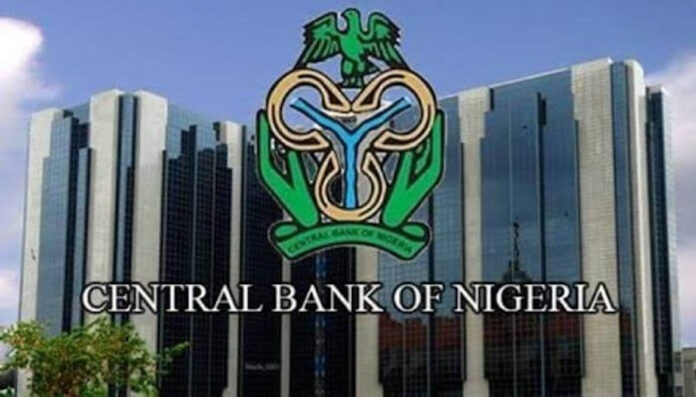Bank Charges in Nigeria’s Digital Age: Why the CBN Must Step In Before Innovation Loses Trust, by Shuiab S. Agaka
The growing chorus of complaints from Nigerian bank customers over excessive charges is more than just a consumer protection issue — it is a test of the Central Bank of Nigeria’s willingness to balance the drive for financial innovation with fair treatment of users. As the country pushes deeper into a digital-first banking era, where electronic channels such as mobile banking apps, USSD platforms, and instant payment systems dominate transactions, the costs attached to these conveniences have increasingly become a point of contention. While technology has undoubtedly transformed the banking experience, making transfers, bill payments, and savings seamless, the shadow of creeping charges is eroding public trust in the system.
In a society where cashless policies have been aggressively promoted by the apex bank, customers have had little choice but to adopt electronic payment channels. From the standpoint of innovation, this shift has been a success story — Nigeria’s digital payments infrastructure is now one of the most advanced in Africa. Transactions happen in real time, even across different banks, and fintechs have brought user-friendly interfaces that have redefined how people interact with money. But this progress comes at a price, and for many Nigerians, the price is becoming unsustainable. Transfer fees, stamp duties, SMS alert charges, account maintenance fees, and even ambiguous “administrative” deductions collectively take a significant bite out of the average customer’s balance.
The situation is aggravated by the lack of transparency in how some charges are applied. Many customers log into their banking apps to find small but frequent debits, often without prior notification or clear breakdowns. In a competitive digital economy, where data analytics and automated systems could make these costs predictable and customer-friendly, Nigerian banks still often operate in a way that leaves the end-user guessing. This opacity undermines the very trust that digital banking needs to thrive. Even fintech startups, initially praised for their zero or low-fee models, are starting to adopt similar practices as they grow, suggesting that the problem is structural rather than just a matter of “old bank” culture.
The CBN’s role here is pivotal. As the regulator overseeing both traditional and digital banking institutions, it has the authority to set boundaries for service charges and enforce compliance. Previous interventions, such as revising the guide to bank charges, were steps in the right direction, but enforcement remains weak. In the age of digital transactions, where automation could ensure strict adherence to pricing rules, there is little justification for irregularities. What is needed is a more dynamic and proactive regulatory approach, where data from banking systems is monitored in real time to detect and address overcharging before it becomes a systemic issue.
From a technological perspective, there is also a missed opportunity for banks to leverage innovation to create customer-centric pricing models. For example, AI-powered analytics could allow banks to tailor fees based on usage patterns, ensuring that heavy users of certain services contribute more while casual users are not burdened unnecessarily. Similarly, blockchain-based transaction ledgers could make it impossible for banks to introduce hidden charges, as every fee would be immutably recorded and visible to both the customer and the regulator. Yet, such solutions remain largely absent in Nigeria’s banking ecosystem, not because the technology is unavailable, but because the incentive to maintain the status quo is stronger.
The frustration among customers is compounded by the fact that other digital industries have found ways to offer high-quality services with minimal or no extra fees. In e-commerce, for instance, platforms compete by offering free deliveries or absorbing payment gateway costs as a way to retain customers. In telecommunications, data rollover and competitive bundles have become standard, driven by market pressure. In contrast, the banking sector, despite being more critical to everyday life, often operates in a quasi-monopolistic manner, where switching providers does not necessarily guarantee relief from these charges. This lack of meaningful competition has weakened the market’s natural ability to correct unfair practices.
There is also an economic cost to excessive bank charges that goes beyond individual inconvenience. When the cost of digital transactions is high, it creates friction in commerce, especially for small businesses and informal traders who rely on instant transfers to complete sales. Many of these entrepreneurs are already grappling with thin profit margins due to inflation and unstable power supply. For them, losing ₦50 to ₦100 per transfer may seem small in isolation, but multiplied across dozens of daily transactions, it becomes a substantial drain. This reality not only affects the bottom line of these businesses but also discourages the full adoption of digital payments, pushing some back toward cash — undermining the CBN’s own financial inclusion and cashless economy goals.
Furthermore, Nigeria’s tech-driven banking future hinges on digital trust, and high, opaque charges are a direct threat to that trust. In advanced economies, neobanks and payment platforms build loyalty by offering predictable, low-cost services while monetizing through other means such as lending, investments, or premium features. Nigerian banks, on the other hand, appear overly reliant on transactional fees as a revenue stream. This approach is not sustainable in the long run, especially as global fintech competition intensifies and cross-border payment platforms begin to target Nigerian consumers directly.
The path forward requires both regulatory courage and industry innovation. The CBN must not only cap fees but also ensure these caps are technologically enforced across all banking systems. Public-facing dashboards could show, in aggregate, how much Nigerian banks are collecting in fees, giving customers the information they need to demand better. At the same time, banks should be incentivized to explore alternative revenue models, including offering value-added digital services, rather than squeezing more out of each transaction. Fintechs, for their part, should resist the temptation to mirror traditional banks’ fee-heavy structures and instead focus on differentiation through transparency and affordability.
Ultimately, the promise of Nigeria’s digital banking revolution is that it will empower citizens to manage and move money with unprecedented ease. But if each swipe, tap, or transfer comes with a hidden cost, that promise will ring hollow. The public’s call for the CBN to caution banks is not an attack on innovation; it is a demand for innovation that works for the people, not against them. In the digital economy, trust is currency — and once spent recklessly, it is hard to earn back.
Shuaib S. Agaka
















